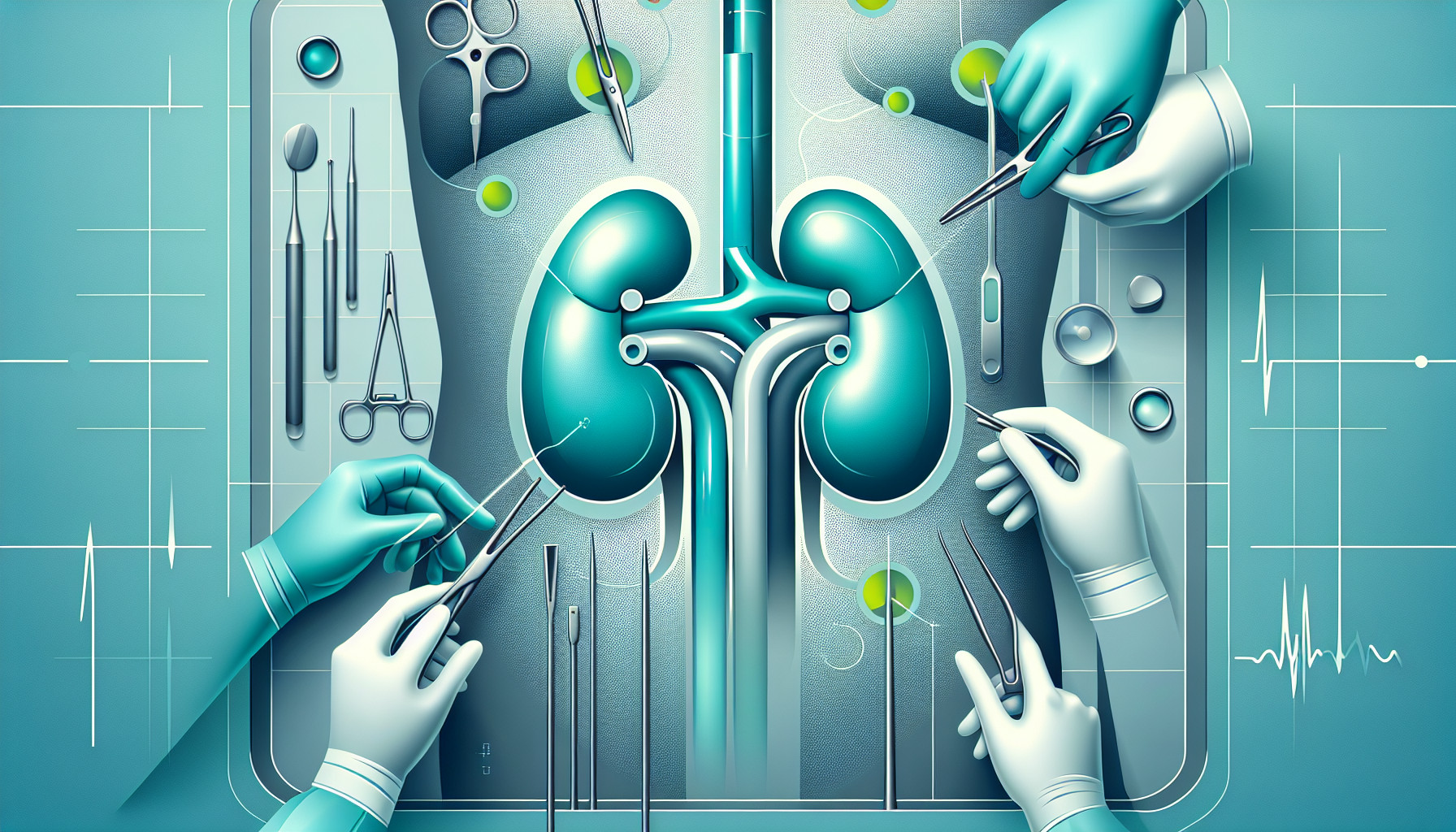Our Summary
This research paper examines the prevalence of depression in kidney transplant recipients. It suggests that despite the benefits of receiving a kidney transplant, many patients still experience depression, which is more common in transplant recipients than the general population. The study proposes that more needs to be done to prevent, identify and manage depression in these patients. It highlights that routine screening for depression is highly recommended, but rarely implemented in practice. The paper concludes that increasing awareness and education about depression amongst kidney transplant recipients is crucial for early identification and treatment. It also suggests further studies and assessments to better understand and manage depressive symptoms in these patients.
FAQs
- What is the prevalence of depression in kidney transplant recipients according to the research paper?
- What recommendations does the study make to manage depression in kidney transplant recipients?
- Why does the research paper suggest that more awareness and education about depression are needed for kidney transplant recipients?
Doctor’s Tip
A doctor might tell a patient about kidney transplant to ensure they follow a strict medication regimen to prevent rejection of the new kidney, attend all follow-up appointments for monitoring, maintain a healthy diet and exercise routine to support overall kidney function, and avoid smoking and excessive alcohol consumption to protect the new kidney. Additionally, they may advise the patient to be vigilant about any signs of infection or other complications and to seek medical attention promptly if any concerns arise.
Suitable For
Patients who are typically recommended for a kidney transplant are those with end-stage renal disease, which is a condition where the kidneys are no longer able to function properly. This can be due to various reasons such as chronic kidney disease, diabetes, high blood pressure, or genetic conditions. Transplant candidates are usually on dialysis and have been evaluated by a healthcare team to determine if they are suitable candidates for a transplant.
Other factors that may influence whether a patient is recommended for a kidney transplant include their overall health, age, and willingness to adhere to post-transplant care and medications. Patients who are likely to benefit from a kidney transplant and have a good chance of a successful outcome are typically recommended for the procedure.
It is important for healthcare providers to assess the mental health of kidney transplant candidates and recipients, as depression and other mental health issues can impact the success of the transplant. Patients who have a history of mental health issues or who are experiencing symptoms of depression should be evaluated and treated accordingly before and after the transplant procedure.
Timeline
Before Kidney Transplant:
- Diagnosis of kidney failure: Patients are diagnosed with kidney failure and begin undergoing dialysis treatments to filter waste and excess fluids from the blood.
- Evaluation and testing: Patients undergo a series of tests and evaluations to determine if they are eligible for a kidney transplant, including blood tests, imaging scans, and psychological evaluations.
- Waitlist placement: Patients are placed on the national kidney transplant waitlist and must wait for a suitable donor match to become available.
- Dialysis treatments: Patients continue to undergo regular dialysis treatments to manage their kidney failure and maintain their health while waiting for a transplant.
After Kidney Transplant:
- Surgery: Patients undergo a kidney transplant surgery where a healthy kidney is transplanted into their body.
- Recovery: Patients spend several days in the hospital recovering from the surgery, monitoring for any complications, and adjusting to their new kidney.
- Immunosuppressive medications: Patients must take immunosuppressive medications for the rest of their lives to prevent their body from rejecting the transplanted kidney.
- Follow-up care: Patients have regular follow-up appointments with their transplant team to monitor their kidney function, adjust medications, and address any complications.
- Rehabilitation: Patients may undergo rehabilitation to regain strength and function after surgery, including physical therapy and dietary counseling.
- Emotional and mental health support: Patients may experience a range of emotions after a kidney transplant, including anxiety, depression, and stress. It is important for patients to receive emotional and mental health support to cope with these challenges.
- Long-term care: Patients must continue to follow a healthy lifestyle, including a balanced diet, regular exercise, and avoiding smoking and excessive alcohol consumption, to maintain the health of their transplanted kidney in the long term.
What to Ask Your Doctor
- What are the potential risks and complications associated with kidney transplant surgery?
- How long is the recovery period after a kidney transplant?
- What medications will I need to take after the transplant and what are the potential side effects?
- How often will I need to follow up with my transplant team after the surgery?
- What lifestyle changes will I need to make to ensure the success of the transplant?
- How can I prevent rejection of the transplanted kidney?
- What signs or symptoms should I watch out for that may indicate rejection or other complications?
- How will the transplant affect my overall health and well-being in the long term?
- Are there any support groups or resources available for kidney transplant recipients to help with emotional and psychological challenges, such as depression?
- What can I do to maintain good mental health and prevent or manage depression after the transplant surgery?
Reference
Authors: Veater NL, East L. Journal: J Ren Care. 2016 Sep;42(3):172-84. doi: 10.1111/jorc.12162. Epub 2016 May 25. PMID: 27220908
